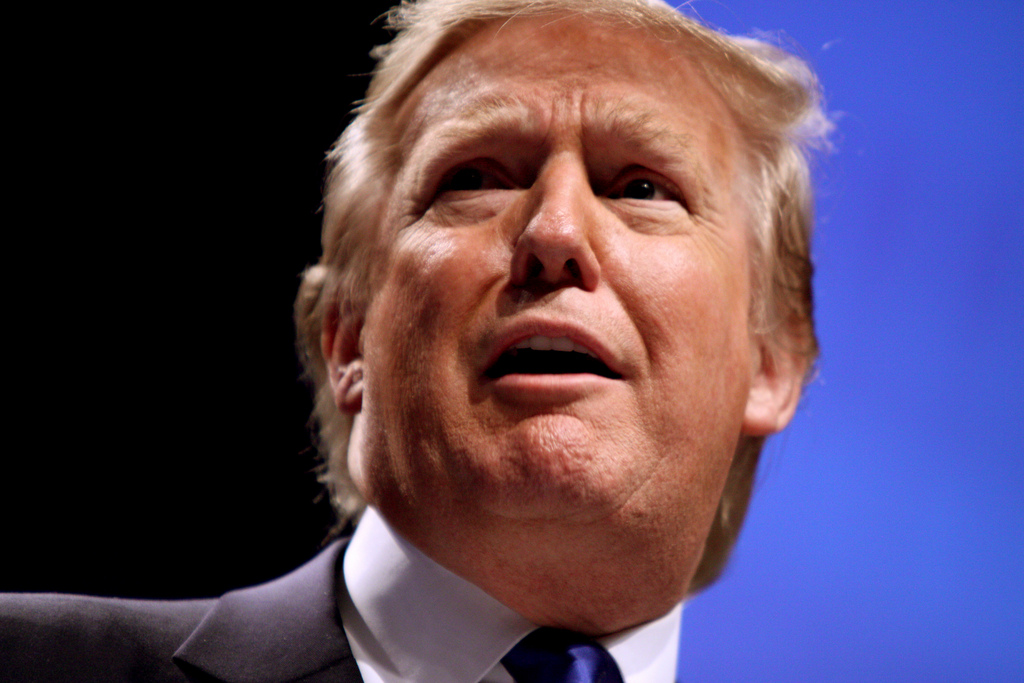There’s an old English idiom, “Don’t judge a book by its cover.” In other words, you should refrain from prejudging something, or someone, based solely on appearance.
Does this same principle apply in other scenarios, including voting for a political candidate? Yes, it does.
The reason I bring this topic up is based on some things I recently saw on social media. In particular, fellow CJN columnist Bernie Farber expressed concern about his Facebook friends who support (or will likely support) Donald Trump in this year’s U.S. presidential election. He’s also concerned about Jews who support Trump, in light of the fact that some white supremacists are openly celebrating his nomination.
Fair enough. Let’s deconstruct this position. The right to vote, as we know, is one of the great privileges of living in a democratic society. We’ve engaged in intellectual battles to create them and entered in bloody, violent wars to protect them.
Yet this important right isn’t always used in a way that all individuals would necessarily agree with. Some political parties and candidates that people vote for – or you vote for – can be diametrically opposed to the values and ideas that our families, friends, colleagues and neighbours hold.
That’s a healthy component of our democracy, however. We should always be willing to discuss, debate and disagree about politics in a civilized manner. Shutting down intellectual discourse accomplishes nothing, and neither does shouting and name-calling directed at a political opponent or polar opposite.
There are people who believe Trump’s candidacy is a unique exception to this rule. They feel his attacks on different groups (including women, Hispanics and Muslims), along with his bullying, fear-mongering and aggressive tone and style, shouldn’t be tolerated by decent, level-headed people.
Indeed, many small “c” conservatives have serious issues with Trump. I’m one of them. But I also recognize that many good people will vote for the Republican presidential nominee in November. Some genuinely like Trump as a candidate. Others respect his support for law and order and a more muscular foreign policy. Still others wish to vote for him strategically in order to prevent Democratic presidential nominee Hillary Clinton from getting into the White House.
The latter point frustrates some people. Yet, it’s a legitimate position. There are American voters who thoroughly dislike Trump’s intolerant behaviour and fundamentally disagree with Clinton’s left-wing agenda. If they believe the latter is worse for the nation than the former – and many do – they’ll bite their tongues and vote for Trump.
To be sure, there are some controversial figures who openly support Trump. This includes former Ku Klux Klan grand wizard David Duke, along with several white nationalist organizations and the Alt-right movement. At the same time, this has absolutely nothing to do with Jews, and, more specifically, Jews who will vote for Trump. Like it or not, many controversial figures often vote, and have voted, for mainstream political parties of the left and right. Duke, in particular, was a one-term Republican Louisiana state representative (although the GOP refused to endorse him during the 1991 Louisiana gubernatorial campaign).
What are Jews going to do – not vote for any of these parties again? Of course not. It is what it is, and you move on.
Meanwhile, Trump has firmly repudiated Duke, white nationalists/supremacists and other fringe groups during the primaries. Yes, it took him a few days to do so at the very beginning, for whatever foolish reason. But he ultimately did the right thing and thrust them aside. Most Jews should be content with this decision.
Naturally, Farber and others have the freedom to be concerned with friends who park their votes with parties and individuals they don’t like. But one hopes they wouldn’t refuse to be friends with them because of their freedom to support someone different. You can’t judge a vote by its cover, after all.







